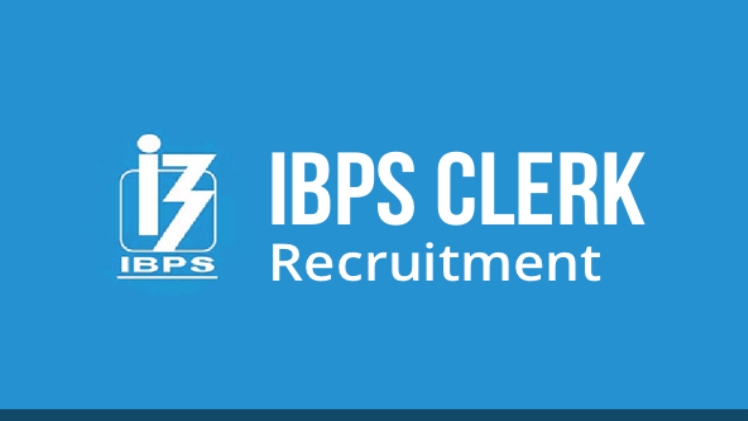In India, many government exams are conducted. The candidates are eligible to give these examinations only after they have done their graduation. The clerk exams are one of these government exams. Through CRP – Common Recruitment Process, the IBPS – Institute of Banking Personnel Selection recruits aspirants for the post of Clerk in various banks in the country. Competitors who wish to get the post of Clerk in the Banking sector must know about the key points regarding the IBPS Clerk.
Eligibility Criteria
The nationality of the aspirant giving the examination of the IBPS Clerk should be Indian. The students whose age is between 20-28 are preferable to appear for this exam. Also, these candidates must have a bachelor’s degree in any domain with the proper computer literacy.
Salary Of IBPS Clerk
There is an increment in the salary of the IBPS Clerk as the person performs well and gets promoted. The minimum stipend for the person having the post of the IBPS Clerk is Rs. 11765 and the maximum is Rs. 31540.
Spheres Included In The IBPS Clerk Post
There are different domains that are available to aspirants who are applying for the IBPS post. These are as follows:
- Interest Clerk
- Loan Clerk
III. Statement Clerk
- Exchange Clerk
- Security Clerk
- Book Keeping Clerk
The number of vacancies available for the IBPS Clerk post is 19243. The competitors have to be thorough with the above-mentioned points to know about the IBPS Clerk exam. To get the details and methods of how to become an IBPS clerk, they should visit this website.
To pass the IBPS Clerk exam in the first attempt, contenders must follow some specific strategies. By reading this article, aspirants will get to know about some preparation tips and tricks which are mentioned below:
- The Blueprint Of The IBPS Clerk Exam
For being selected as the IBPS Clerk, aspirants have to clear two phases of the exam.
- Prelims Exam
- Mains Exam
These exams are conducted online meaning they are computer-based tests. Multiple choice questions are asked in the question paper.
- The exam pattern of the Prelims exam
- English Language Section
Total no. of questions – 30
Total marks – 30
- Quantitative Aptitude Section
Total no. of questions – 35
Total marks – 35
- Logical Ability Section
Total no. of questions – 35
Total marks – 35
- The exam pattern of the Mains exam
- English Proficiency Section
Total no. of questions – 40
Total marks – 40
- Financial/ General Awareness Section
Total no. of questions – 50
Total marks – 50
- Computer Aptitude/ Reasoning Ability
Total no. of questions – 50
Total marks – 60
- Mathematical Ability
Total no. of questions – 50
Total marks – 50
- The IBPS Clerk Exam Curriculum
Candidates have to prepare various topics for each section to solve the questions. These significant topics are discussed here:
- General English – Deriving conclusion, antonyms, synonyms, homonyms, rearranging phrases, active or passive voice, etc.
- Logical Ability – Analogy, series test, assertion and reasoning, sitting arrangement, coding-decoding, figure series, etc.
- Mathematical Ability – Profit, loss, interest, ratio and proportion, speed, bar graphs, surface area and volume, etc.
- Computer Aptitude – Database basics, security tool, viruses, MS Office, software and hardware basics, etc.
- General Awareness – National and international current affairs, Indian banking system, banking terms, financial system, etc.
- Give Importance To Question Papers
Students should centralise on previous years’ question papers and mock test papers. Working out on these papers will help them to prepare better for the examination. When they will solve these papers, they will get an idea of the exam pattern and the types of questions asked in the exam. Self-analyzation can also be done by practising these question papers.
- Concentrate On Crucial Topics
When examination comes near, most of the aspirants are unable to complete their syllabus on time. Therefore, they are advised to focus on important and easy topics. These easy topics will take less time for studying. By this, they can use their remaining time in understanding the difficult concepts. By preparing only significant topics, they can score well in the examination.
- High Writing Pace With Accuracy
As only 1 hour is allotted for the completion of the Prelims exam paper and 2 hours for the Mains exam paper hence candidates have to maintain their writing speed. Enhancing their writing pace will enable them to complete their exam before the allotted time. They can practice sample papers to improve their writing speed. With increased writing speed, accuracy is also important while attempting the question as there is a rule of negative marking. Therefore, candidates should answer those questions which they can solve easily.
- Get Updated Daily
Competitors who are preparing for the IBPS Clerk examination should be well-versed about each news related to it. They should daily check the official websites to know if there are any new announcements. By doing this, they will get updated with the information regarding the IBPS Clerk exam.
- Improvement Of The Skills Is Necessary
- For accurately attempting the questions of the English Language section, aspirants must learn the grammar rules and practice them thoroughly. By this, they can attain good marks in this section.
- Students can enhance their calculating skills by clarifying all their basic concepts. For getting good marks in the Quantitative Aptitude section, they should practice various quizzes, puzzles, mock tests, etc. They should learn all the formulas so that they can solve the questions.
- For the Logical Ability section, candidates can refer to various study materials. They can solve questions related to number series, analogy, sitting arrangement, etc to make a stronghold on this section.
- Reading the newspaper daily can help students to get decent marks in the General Awareness section as they will get to know about the events taking place all around the world. They can also use the internet to read current affairs.
- Build A Proper Schedule
Here are some points that candles must keep in mind while making a timetable:
- Dedicate 10-12 hours to studying and understanding the concepts.
- Make use of sample papers and guidebooks.
- Have a proper sleep of 7-8 hours.
- Meditate and exercise daily to keep the mind and body fresh.
- Avoid continuous studying.

